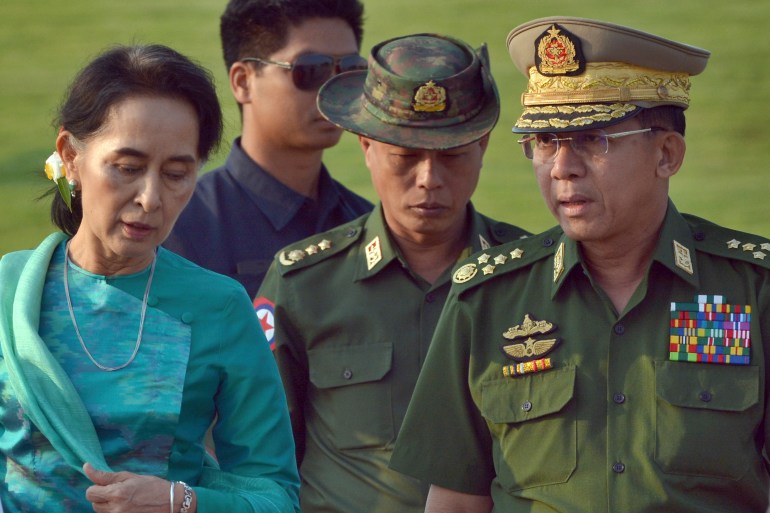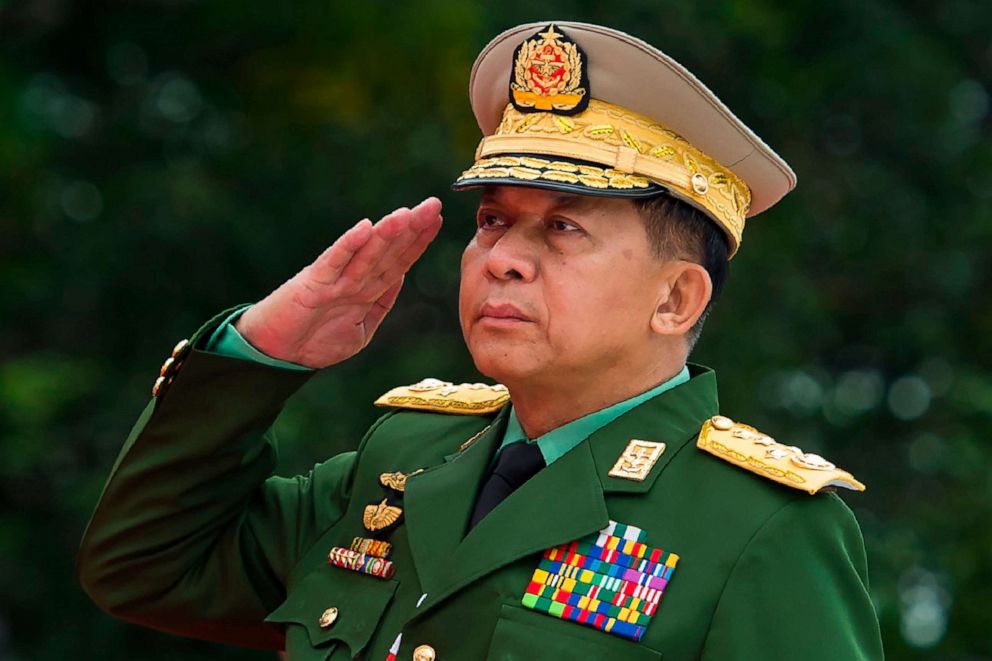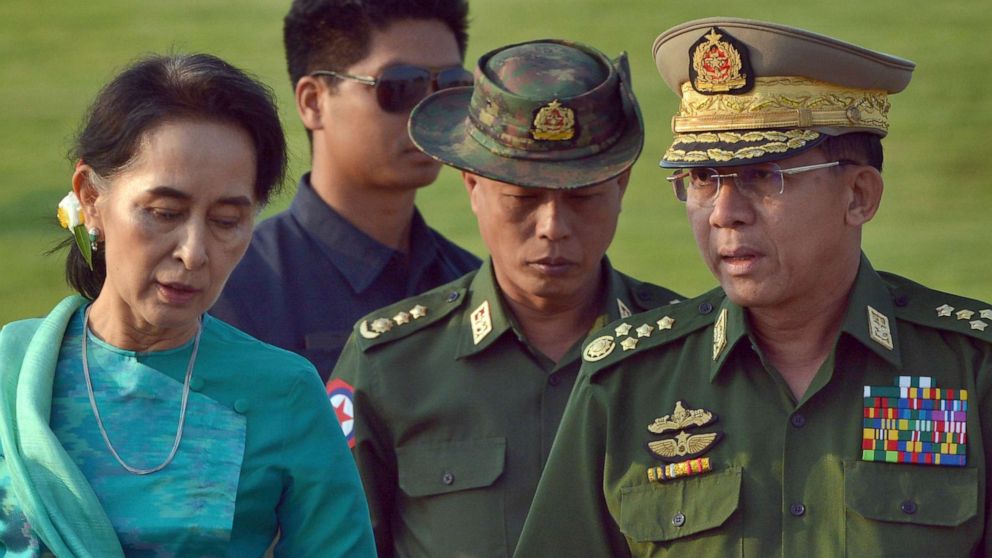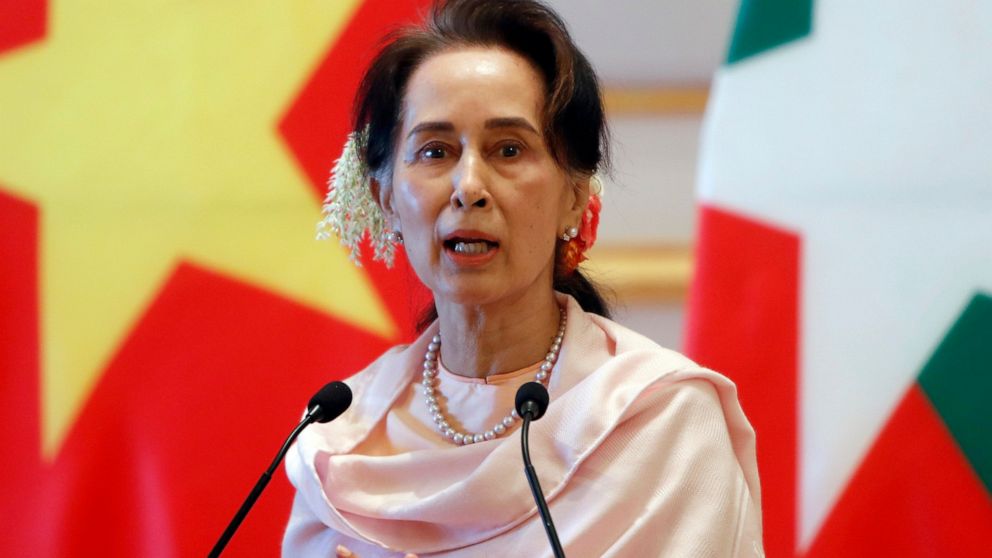'We Have Got to Act Now': As GOP Introduces Weak Relief Bill, Sanders Says Dems Already Have Enough Votes to Pass Stronger Package
"We made promises to the American people. We're going to keep those promises."
Published on Sunday, January 31, 2021

"The question is not bipartisanship," Sen. Bernie Sanders (I-Vt.) said on Sunday, January 31, 2021. "The question is addressing the unprecedented crises that we face right now." (Photo: Screengrab from ABC)
Sen. Bernie Sanders of Vermont on Sunday told ABC host Martha Raddatz that there is a sufficient amount of support within the Democratic Party to pass President Joe Biden's $1.9 trillion coronavirus relief package and warned that failing to immediately distribute aid to struggling households throughout the country would represent an unconscionable betrayal of the millions of voters who handed Democrats unified legislative and executive power with a directive to improve people's lives.
"The question is not bipartisanship. The question is addressing the unprecedented crises that we face right now."
—Sen. Bernie Sanders
"We made promises to the American people," said Sanders. "We're going to keep those promises."
"Does your party have the votes to pass the relief package through the reconciliation process, if you decide to go that route?" asked Raddatz.
"I believe that we do," Sanders, an independent member of the Democratic caucus, replied. "It's hard for me to imagine any Democrat... who doesn't understand the need to go forward right now, in an aggressive way, to protect the working families of this country."
While acknowledging that Democratic lawmakers have "differences and concerns" about Biden's $1.9 trillion opening offer, Sanders stressed that "we're going to support the president of the United States, and we're going to... do what the American people overwhelmingly want us to do."
Although polling shows that the U.S. electorate overwhelmingly supports "an expansive government effort to combat Covid-19," Raddatz drew attention to tensions within the Democratic Party about moving forward unilaterally, if necessary.
Sen. Joe Manchin (D-W.V.)—a right-wing lawmaker who last week reassured Senate Minority Leader Mitch McConnell (R-Ky.) that he would never vote to end the filibuster, a "Jim Crow relic" that requires 60 votes to pass major legislation and thus facilitates anti-democratic rule—on Friday emphasized his desire to "find a bipartisan pathway forward."
Sanders—who is the incoming chairman of the Senate Budget Committee and has signaled his willingness to use the filibuster-proof budget reconciliation process to circumvent GOP obstructionism—wasn't having it.
"Democrats have a majority [in the Senate] because of the fact that we won two seats with great candidates in Georgia," said Sanders. "That campaign in many ways was a national campaign."
Sens. Jon Ossoff and Raphael Warnock won in Georgia and by extension, Democrats won nationwide, Sanders said, because the party pledged to deliver relief checks, extend unemployment benefits, and "address the needs of working families."
"If politics means anything, if you're going to have any degree of credibility," Sanders continued, "you can't campaign on a series of issues and then after the election when you get power say, 'Oh well, you know what, we're changing our mind.' That's not the way it works."
Sanders' call for the Democrats to quickly fulfill their mandate to reduce suffering by providing relief as soon as possible coincided with reports that 10 Republican senators on Sunday requested a meeting with Biden to discuss their $600 billion coronavirus relief package, which they have presented as an alternative to the president's plan.
According to The Washington Post, the senators, led by Susan Collins (R-Maine), characterized their proposal as a fulfillment of Biden's "calls for unity." The newspaper noted that the GOP is expected to propose sending even smaller relief checks to far fewer people—slashing direct payments to $1,000 and limiting eligibility to those with individual incomes under $50,000 per year.
The group of GOP lawmakers intends to share additional details on Monday, the same day "Democratic leaders in both chambers are tentatively planning to introduce a budget resolution," the Post reported.
As Common Dreams reported last week, leaders of the Congressional Progressive Caucus (CPC) sent a letter to House Speaker Nancy Pelosi (D-Calif.) and Senate Majority Leader Chuck Schumer (D-N.Y.) in which they warned that "if we aim too low, the financial consequences will be catastrophic, long-lasting, and borne by the American families who can least afford it."
The CPC's letter came in response to reports that the Biden administration—after seeking input about coronavirus relief from ostensible deficit-hawks, including Collins who, even after supporting tax cuts for the wealthiest Americans, claims the president's existing plan for direct payments will benefit allegedly undeserving middle-class families—is considering splitting its package into two parts in an attempt to attract GOP support.
Excluding more households from relief through additional means-testing—an approach that billionaire-owned media outlets are trying to rationalize—would be "not just bad economics, but terrible politics," Rep. Ro Khanna (D-Calif.) cautioned last week. Trying to "target" aid to the poorest individuals, Khanna said, would leave out millions of people with moderate incomes who are nonetheless struggling, breeding anti-government resentment in the process. "Have we learned nothing?" he asked.
Progressives, already frustrated that Biden is calling for $1,400 checks instead of the promised $2,000, have stressed that Democrats "do not have to negotiate against themselves, word-parse their way out of campaign pledges, and delude themselves into thinking that Republicans are good-faith legislative partners," as The Daily Poster's David Sirota put it last week.
Sirota on Sunday suggested that Republicans may be "deliberately trying" to prevent Democrats from following through on their pledge to deliver adequate relief "so that the GOP can then run ads against Dems for breaking the promise."
With Sanders insisting that there is already enough support within the party to enact Biden's $1.9 trillion proposal, it remains to be seen how corporate Democrats will respond—needlessly collaborate with GOP lawmakers in pursuit of a watered-down bipartisan deal that represents elite "unity" but fails to meet the scale of the crisis, or listen to the progressive wing of the party and pass a robust relief package without the support of congressional Republicans.
"We have got to act, and we have got to act now," Sanders said in his appearance on ABC.
Alluding to the $600 billion plan put forth by 10 Republican senators, Raddatz—who neglected to mention that the GOP previously spent months stonewalling relief—asked Sanders: "Is it a mistake for Democrats to consider abandoning bipartisan negotiations so soon?"
To which Sanders responded: "The issue is not bipartisanship, or not. The issue is are we going to address the incredible set of crises and the pain and the anxiety, which is in this country."
"We have families... who cannot feed their kids," the senator continued. "We have millions of people who face eviction. We are in the midst of the worst pandemic in 100 years."
"The question is not bipartisanship," Sanders added. "The question is addressing the unprecedented crises that we face right now."
Biden on Friday expressed a similar sentiment: "I support passing Covid relief with support from Republicans if we can get it. But the Covid relief has to pass, there's no ifs, ands, or buts."
/cloudfront-ap-southeast-2.images.arcpublishing.com/nzme/4VNIVIHIRJUZRI5SB6L43S4QZM.jpg)
![The previous five-person legal team parted ways with the ex-president on Saturday days before his trial [File: Carlos Barria/Reuters]](https://www.aljazeera.com/wp-content/uploads/2021/01/2021-01-20T195909Z_1660781174_RC2VBL9EDH5Q_RTRMADP_3_USA-TRUMP.jpg?resize=770%2C513)















